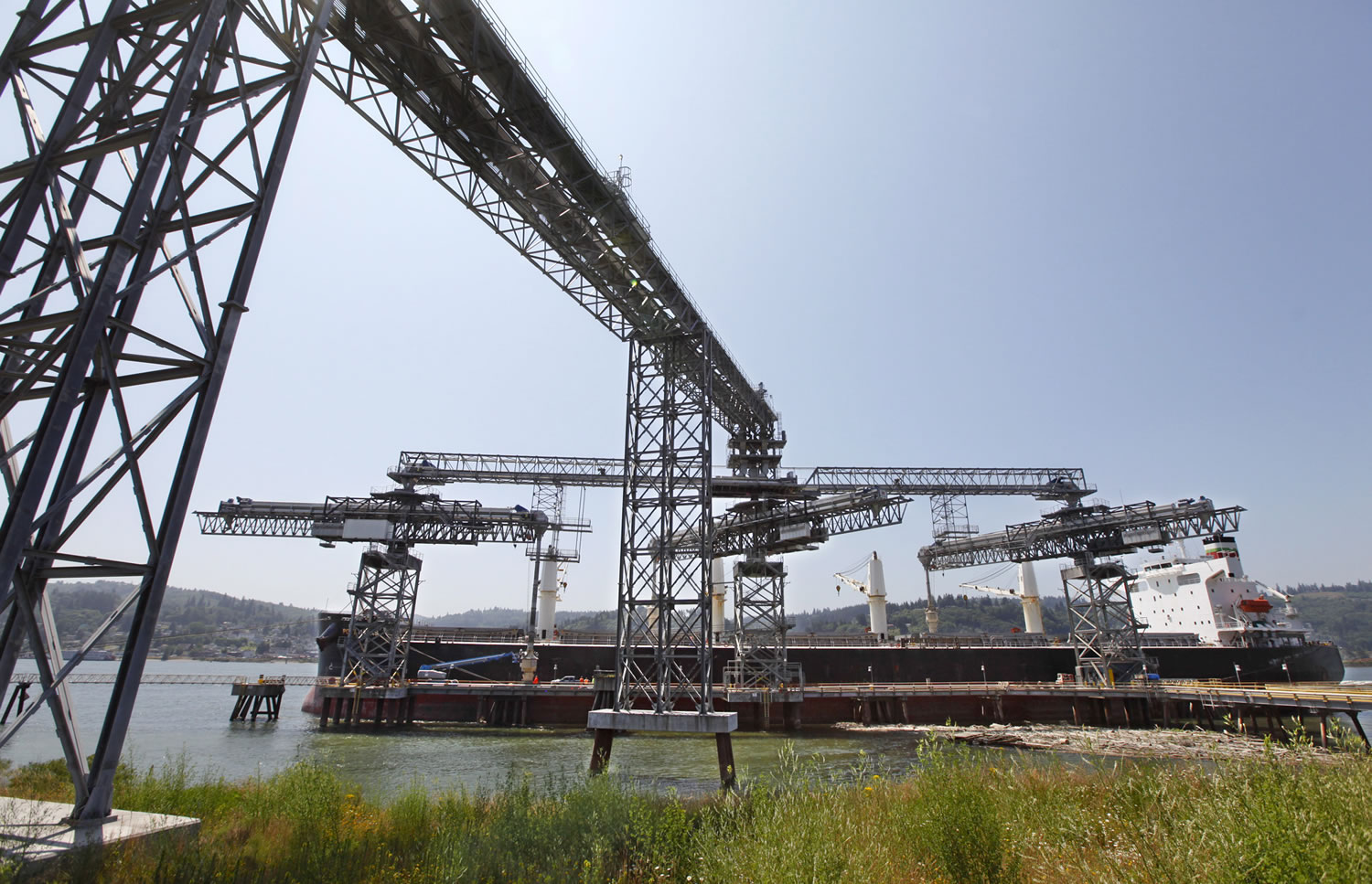PORTLAND — The union contract between longshoremen and the companies that operate six grain terminals in the Pacific Northwest expires Sunday, threatening to disrupt shipments of wheat, corn and soybeans to Asia as the weight of last year’s violent protests in Longview bears down on negotiations.
Neither side has commented on the talks. Pat McCormick, spokesman for the Pacific Northwest Grain Handlers Association, the consortium of grain shippers, declined to say if there are plans to boost security or hire replacement workers.
“Prudence suggests that probably everyone involved has contingency plans, but I don’t have anything I can confirm,” he said.
The region has nine grain terminals, seven along the Columbia River and two on Puget Sound. More than a quarter of all U.S. grain exports and nearly half of U.S. wheat exports move through these facilities.
At the Port of Vancouver, which handles about 16 percent of the nation’s grain exports at Terminal 2, spokeswoman Katie Odem told The Oregonian that managers’ first priority is to ensure safety for staff, tenants, customers and dockworkers.”Our second priority is to make sure our property is protected,” Odem said. “And our third priority is to keep the port open for business.”
Six of the nine terminals operate under a single collective bargaining agreement with the International Longshore and Warehouse Union. The others, including Export Grain Terminal in Longview, have different agreements.
The Longview contract looms over these negotiations — both for concessions won by management and the violence that preceded the deal.
In a fact sheet sent at the start of talks, the Grain Handlers Association indicated it wants a contract similar to what Longview longshoremen ultimately accepted. The operators said cost-saving workplace rules in the agreement are “much more advantageous” than those at their terminals.
“Leveling the playing field and avoiding extreme competitive disparities among Northwest grain shippers and ports is vital,” the association said.
‘Wrong direction’
Some union members criticized other aspects of the Longview contract. A June 21 note signed by 10 current and retired longshoremen — first leaked to The Oregonian — blasted provisions that allow management to fire workers without cause and hire workers directly instead of going through the union hiring hall.
“It heads our union in the wrong direction at the wrong time, caving into employer intimidation and greed,” the note said.
As the sides negotiate, farmers watch, wait and hope they don’t need a less direct, more expensive transportation option — if there is another option.
“When soybeans are loaded onto a railcar, 68 percent of those deliveries either go to Washington state or Oregon,” said Mike Steenhoek, executive director of the Soy Transportation Coalition. “It really shows the prominence of the Pacific Northwest. There really isn’t a Plan B for a lot of these movements.”
South Dakota farmer Bob Metz returned last week from a trip to China, the No. 1 importer of U.S. soybeans. He said his customers were concerned about the labor situation.
A drought led to an early harvest, and most of Metz’s soybeans have been hauled to grain elevators, from where they will be taken by rail to the West Coast for shipping. His customers need the soybeans “today, not tomorrow” as protein to feed livestock.
“You want to be a good supplier to your customer; that’s how you stay in business,” Metz said. “And, of course, you want to be timely. Anything like a grain strike certainly doesn’t send that message.”



